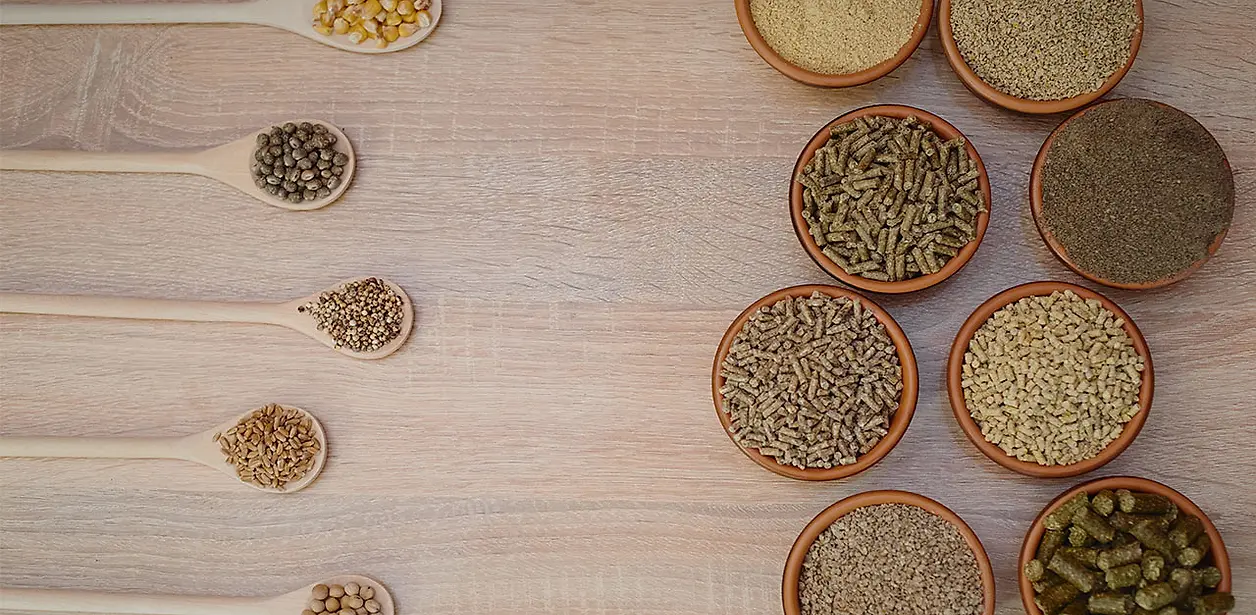ISO 135832 Protein and Amino Acid Quantification in Sheep Diets
The ISO 13583-2 standard provides a robust methodology for the quantification of total protein and individual amino acids in animal feeds. This service is particularly valuable to quality managers, compliance officers, R&D engineers, and procurement professionals within the food & feed sector who need accurate and reliable data on protein content and amino acid profiles.
The standard ensures that feed products meet nutritional requirements, which are critical for optimal growth and health in livestock. For sheep diets specifically, this service helps ensure that the animals receive a balanced diet rich in essential amino acids, contributing to better meat quality, milk production, and overall animal welfare.
Protein is one of the most important macronutrients in sheep feed; it comprises about 20% of an adult sheep’s body weight. The quality of this protein depends on its amino acid profile. Essential amino acids are those that cannot be synthesized by the animals and must come from their diet. These include lysine, methionine, tryptophan, threonine, phenylalanine, and valine.
The process involves several steps starting with sample preparation where feed samples are ground to ensure homogeneity. The extracted proteins undergo digestion in the presence of specific enzymes to break down larger protein molecules into smaller peptides and free amino acids. This step is crucial for accurate quantification as it ensures that all forms of protein are accounted for.
Following this, a chromatographic technique such as high-performance liquid chromatography (HPLC) or ion-exchange chromatography is used to separate the individual amino acids based on their chemical properties. The separated components are then detected and quantified using various analytical techniques including UV-Vis spectroscopy.
| Sample | Protein Content (g/100g) | Amino Acids (mg/g) |
|---|---|---|
| Sample A | 23.5 | Lysine: 600, Methionine: 475, Tryptophan: 180 |
| Sample B | 20.2 | Lysine: 550, Methionine: 420, Tryptophan: 170 |
| Sample C | 26.8 | Lysine: 750, Methionine: 500, Tryptophan: 200 |
The results from this analysis can be used to adjust the feed formulation to meet specific nutritional needs. For instance, if lysine is found to be low in a particular sample of sheep feed, it might indicate a need for additional supplementation.
Benefits
- Ensures compliance with international standards and regulations.
- Improves product quality by providing accurate nutritional data.
- Saves time and resources by avoiding the need for multiple tests.
- Facilitates better decision-making in R&D and procurement processes.
Eurolab Advantages
At Eurolab, we pride ourselves on offering a comprehensive suite of services tailored to meet the specific needs of our clients within the food & feed sector. Our expertise lies in providing accurate and reliable quantification of protein and amino acids according to ISO 13583-2. We leverage state-of-the-art facilities and highly trained technicians to ensure precision in every step of the process.
Our commitment to quality does not end with the analysis; we also provide detailed reports that are easy to understand, making it simple for our clients to implement any necessary changes in their feed formulations. Additionally, we offer support throughout the entire testing and reporting process, ensuring a seamless experience from start to finish.
Use Cases and Application Examples
- Detecting deficiencies or excesses of specific amino acids in sheep feed.
- Verifying compliance with nutritional labels and regulatory requirements.
- Optimizing feed formulations to improve animal health and performance.
- Identifying sources of contamination that may affect protein quality.





